Filter by
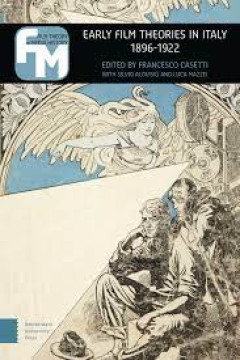
Early Film Theories in Italy, 1896-1922
This collection is the first to bring together scholars to explore the ways in which various people and groups in Italian society reacted to the advent of cinema. Looking at the responses of writers, scholars, clergymen, psychologists, philosophers, members of parliament, and more, the pieces collected here from that period show how Italians developed a common language to describe and discuss t…
- Edition
- -
- ISBN/ISSN
- 9789048527106
- Collation
- -
- Series Title
- -
- Call Number
- -

Composing the Party Line : Music and Politics in Early Cold War Poland and Ea…
Examines the exercise of power in the Stalinist music world as well as the ways in which composers and ordinary people responded to it. A comparative inquiry into the relationship between music and politics in the German Democratic Republic and Poland from the aftermath of World War II through Stalin's death in 1953, concluding with the slow process of de-Stalinization in the mid-to-late 1990s.…
- Edition
- -
- ISBN/ISSN
- 9781557537027
- Collation
- -
- Series Title
- Central European Studies
- Call Number
- 700 TOM c
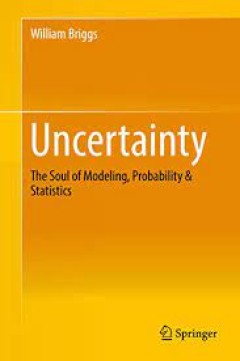
Uncertainty The Soul of Modeling, Probability & Statistics
This book presents a philosophical approach to probability and probabilistic thinking, considering the underpinnings of probabilistic reasoning and modeling, which effectively underlie everything in data science. The ultimate goal is to call into question many standard tenets and lay the philosophical and probabilistic groundwork and infrastructure for statistical modeling. It is the first book…
- Edition
- -
- ISBN/ISSN
- 978-3-319-39756-6
- Collation
- -
- Series Title
- -
- Call Number
- -
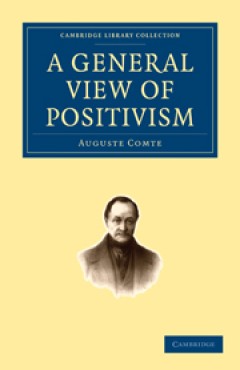
A General View of Positivism
In A General View of Positivism French philosopher Auguste Comte (1798–1857) gives an overview of his social philosophy known as Positivism. Comte, credited with coining the term 'sociology' and one of the first to argue for it as a science, is concerned with reform, progress and the problem of social order in society. In this English edition of the work, published in 1865, he addresses the p…
- Edition
- -
- ISBN/ISSN
- 9780511692888
- Collation
- -
- Series Title
- Cambridge Library Collection - Religion
- Call Number
- -
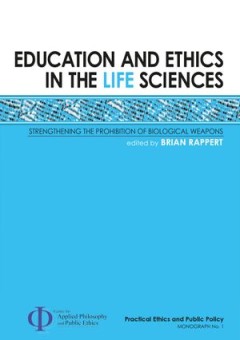
Education and Ethics in the Life Sciences : Strengthening the Prohibition of …
At the start of the twenty-first century, warnings have been raised in some quarters about how – by intent or by mishap – advances in biotechnology and related fields could aid the spread of disease. Science academics, medical organisations, governments, security analysts, and others are among those that have sought to raise concern. Education and Ethics in the Life Sciences examines a vari…
- Edition
- -
- ISBN/ISSN
- 9781921666391
- Collation
- -
- Series Title
- Practical Ethics and Public Policy
- Call Number
- 370 RAP e
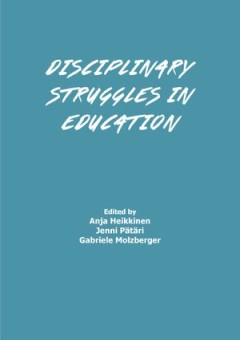
Disciplinary Struggles in Education
This book discusses disciplinary struggles in education from three perspectives. The chapters in the first section analyse the disciplinary character of educational practice and institutions. The second section focuses on justification of educational knowledge in transmission between theory and practice. The contributions of the third section problematise the aims and functions of educational p…
- Edition
- -
- ISBN/ISSN
- 9789523590021
- Collation
- 262 halaman
- Series Title
- Education / Philosophy, Theory & Social Aspects, Education / Adult & Continuing Education
- Call Number
- 370 HEI d
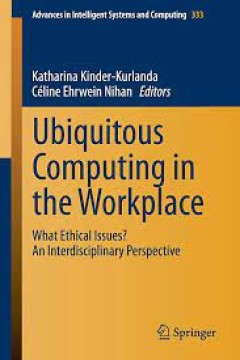
Ubiquitous Computing in the Workplace What Ethical Issues? An Interdisciplin…
This book provides an interdisciplinary collection of views on the ethical challenges and opportunities of workplaces in the Internet of things. Current developments within Ubiquitous computing (ubicomp) systems designed for the workplace are introduced and philosophical, organizational and socio-ethical considerations of ubicomp in workplaces are provided. Suggestions regarding the rules that …
- Edition
- -
- ISBN/ISSN
- 978-3-319-13452-9
- Collation
- -
- Series Title
- -
- Call Number
- -

Beyond Autonomy in Eighteenth-Century British and German Aesthetics
This volume re-examines traditional interpretations of the rise of modern aesthetics in eighteenth-century Britain and Germany. It provides a new account that connects aesthetic experience with morality, science, and political society. In doing so, it challenges long-standing teleological narratives that emphasize disinterestedness and the separation of aesthetics from moral, cognitive, and pol…
- Edition
- -
- ISBN/ISSN
- 9781000077247
- Collation
- 314 halaman
- Series Title
- -
- Call Number
- 700 BEY
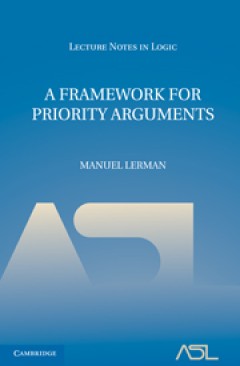
A General Algebraic Semantics for Sentential Logics
Since their inception, the Perspectives in Logic and Lecture Notes in Logic series have published seminal works by leading logicians. Many of the original books in the series have been unavailable for years, but they are now in print once again. In this volume, the seventh publication in the Lecture Notes in Logic series, Font and Jansana develop a very general approach to the algebraization of…
- Edition
- -
- ISBN/ISSN
- 9781316716915
- Collation
- -
- Series Title
- Lecture Notes in Logic (7)
- Call Number
- -
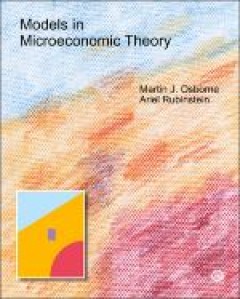
Models in Microeconomic Theory ('He' Edition)
"Models in Microeconomic Theory covers basic models in current microeconomic theory. Part I (Chapters 1-7) presents models of an economic agent, discussing abstract models of preferences, choice, and decision making under uncertainty, before turning to models of the consumer, the producer, and monopoly. Part II (Chapters 8-14) introduces the concept of equilibrium, beginning, unconventionally, …
- Edition
- -
- ISBN/ISSN
- 9781783749218
- Collation
- -
- Series Title
- -
- Call Number
- -
 Computer Science, Information & General Works
Computer Science, Information & General Works  Philosophy & Psychology
Philosophy & Psychology  Religion
Religion  Social Sciences
Social Sciences  Language
Language  Pure Science
Pure Science  Applied Sciences
Applied Sciences  Art & Recreation
Art & Recreation  Literature
Literature  History & Geography
History & Geography